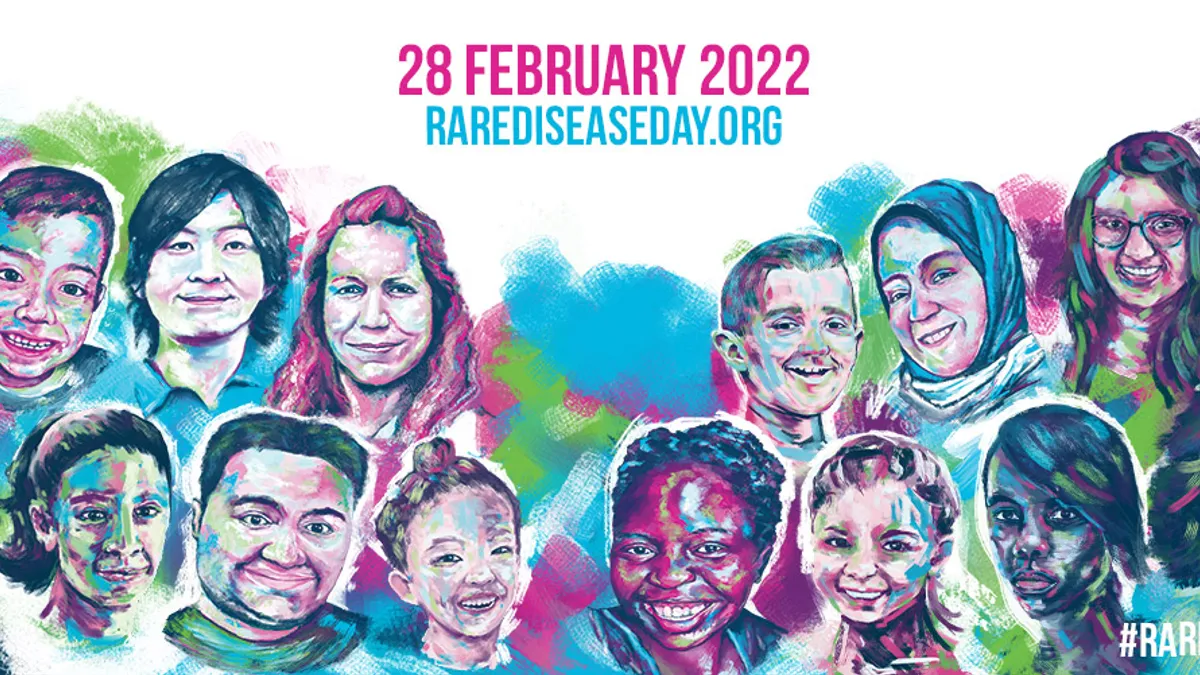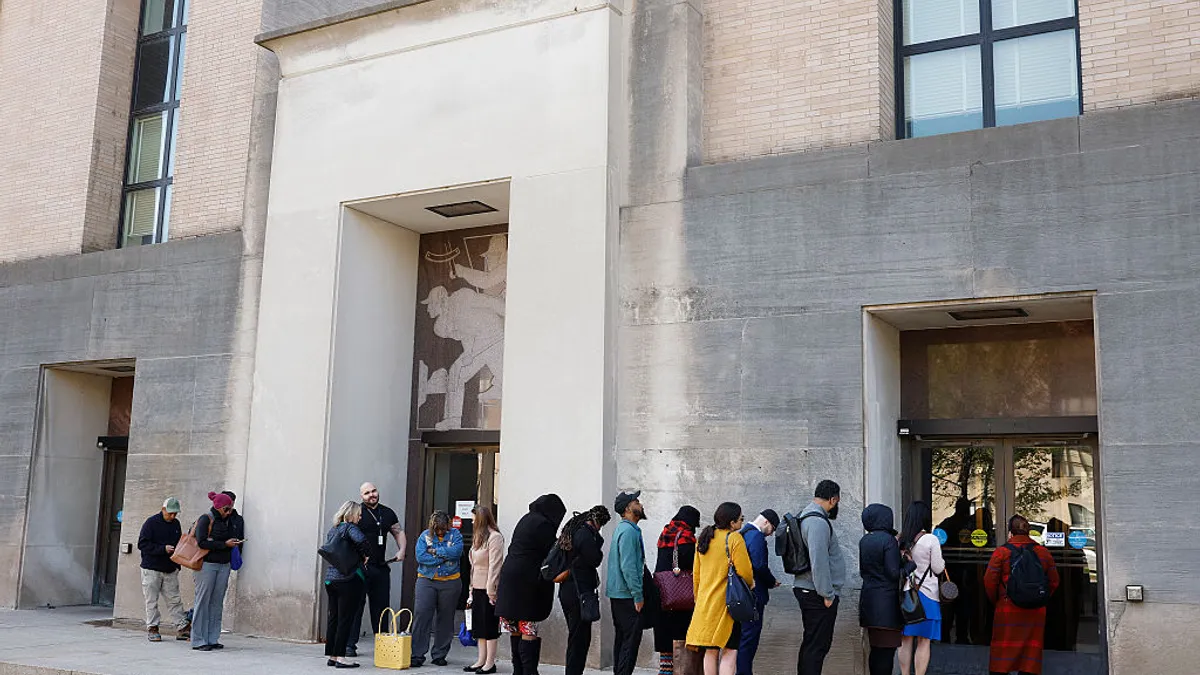As a two-time survivor of a rare cancer, president and CEO of Travere, Eric Dube, is no stranger to challenges.
“Earlier in my life, I was diagnosed with two rare cancers that had no approved therapies," he says. “Fortunately, the cancers were caught early, but I felt the fear of not having a treatment. This gave me a great understanding of this industry’s purpose. I want to help provide hope and support to families when they receive a diagnosis."
In 2020, Dube led the company through a rebranding process, which re-christened the company as Travere Therapeutics, but kept its focus on rare diseases.
Dube says that it's been critical to understand the specific nature of rare diseases to help move products through a complex lifecycle. A strong business sense and hiring quality employees with a passion for helping patients have also been hallmarks of his approach. And finding that passion among his workforce has come naturally as many of the company's employees have been impacted by rare diseases themselves.
The biopharma has completed pre-NDA interactions with the FDA for its small molecule candidate Sparsentan, which was developed to treat IgA nephropathy (IgAN), a rare kidney disorder. The company expects to submit a full NDA submission for IgAN in the first quarter of 2022.
Meanwhile, Sparsentan is also in phase 3 development for the treatment of focal segmental glomerulosclerosis (FSGS). FSGS is a pattern of damage to the kidney with numerous causes that often leads to decline in kidney function and progression to end-stage kidney disease.
Here, Dube, a PharmaVoice100 honoree, shares his thoughts on what it takes to be successful in rare disease research.
PharmaVoice: What, personally, makes you the right leader for a rare diseases company like Travere?
Eric Dube: I’m a two-time rare cancer survivor. I know what it feels like to be diagnosed and told 'there’s no treatment option available.' You’ll often hear me say, I’m impatient for patients — and that is how I lead because I know all too well how it feels to be on the other end. In my case, I was incredibly fortunate that my cancer was caught early, though this is not the case for so many who are affected by rare diseases. This event shaped my views of the support and treatment options patients and their families need when navigating life with a rare disease.
My experience is shared by many people working at Travere. Many of us are rare disease patients, survivors and caregivers. For us, advancing research, delivering life-changing therapeutics and doing everything we can to support this community is personal. We know that time matters, and we know that the work that we do can make a difference. We know what hope looks like, but we also know what having no answer and no treatment feels like.
In rare disease, you need to bring all of your skills to the table. I have been fortunate to have spent nearly all of my career working on launching new medicines, and I came to Travere with the hope of bringing new treatments to the rare disease community. I expect to fully leverage my prior experience and passion to bring these medicines to the families who are waiting for them.
What makes a successful rare disease company?
The two most important factors are its people and an unwavering commitment to patients.
The company must have an unflappable focus on patients, a promising pipeline built on innovative and expert scientific rigor, an experienced commercial organization, and a deep, purpose-driven culture.
One enabler of being truly patient focused as a rare disease company is humility. The experience and input from the patient and caregiver community must be reflected in trial design, endpoints, commercialization plans, as well as support addressing other barriers that may be in the way of an early diagnosis or access to innovative medicines. Being successful means understanding that you do not have all the answers, which requires you to listen to and act upon the experience of patients in all aspects of the business.
How do you combine your passion for helping patients with rare diseases with good business decision-making?
You incorporate the patient perspective and experience into every decision you make and always let that guide you. The ultimate result will always be good decision-making.
For us, the patient experience informs clinical concept, protocol development, and how we recruit and communicate with the rare disease community about our work. By including and engaging with patients early and often, we are better able to meet the unique needs of the patient communities we serve and couple it with good business decision-making.
We also believe that to truly make a difference for the community, you have to be willing to make investments in areas beyond the scope of your programs. For example, Travere sponsors a genetic testing program to help diagnose the cause of newborn cholestasis at no cost to qualifying patients. This program has provided thousands of families with answers over the last couple of years and enabled them to seek care — typically for conditions outside of Travere’s therapeutic focus.
In what way, or ways, is running a rare disease company different (and even similar) to running a biopharma company in broader therapeutic categories?
What makes the rare disease community special is that there is a strong sense that we are all in this together and that’s because we are. For many of us working in this space, it’s personal. How closely connected this amazing community is also sets a rare disease company apart from other therapeutic categories.
It’s not just the close connection to patient advocacy organizations and rare disease families — it’s also the collaboration with other pharmaceutical companies who are in this space as well. I’ll share two recent examples.
In December 2021, an important study was published calling for the modernization of the newborn screening system in America. It takes too long to get a condition approved for screening, and even longer for screening to actually start in each state, leading to preventable deaths and disability. Published in JAMA Network Open, the study was conducted with the support of Travere in partnership with Orchard, Sarepta, BioMarin, and the EveryLife Foundation for Rare Diseases. If you want to make a difference in rare disease, it is critical to work together.
In another example, on the morning of a positive topline data readout last year, I heard from employees, mentors, board members, patient families and advocacy organizations — but I also received many emails from my peers, fellow CEOs, at other rare disease pharmaceutical companies with words of encouragement and support. That is what makes working in rare disease special. A step forward is progress for the entire community.


















